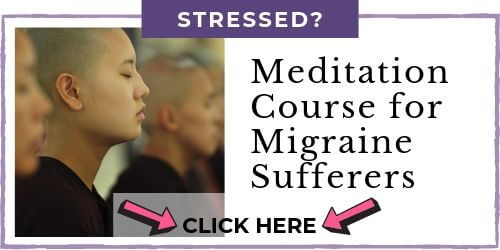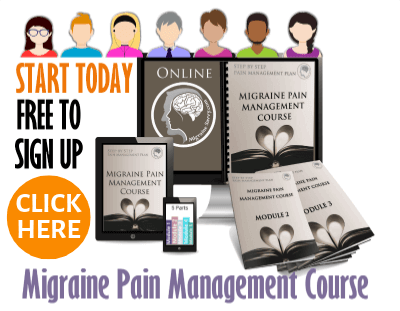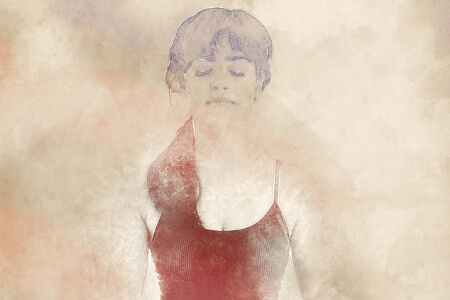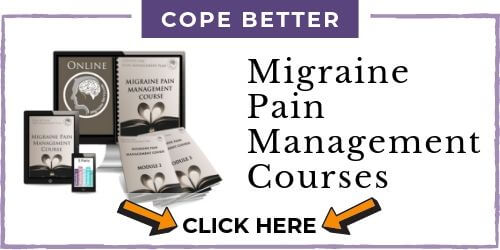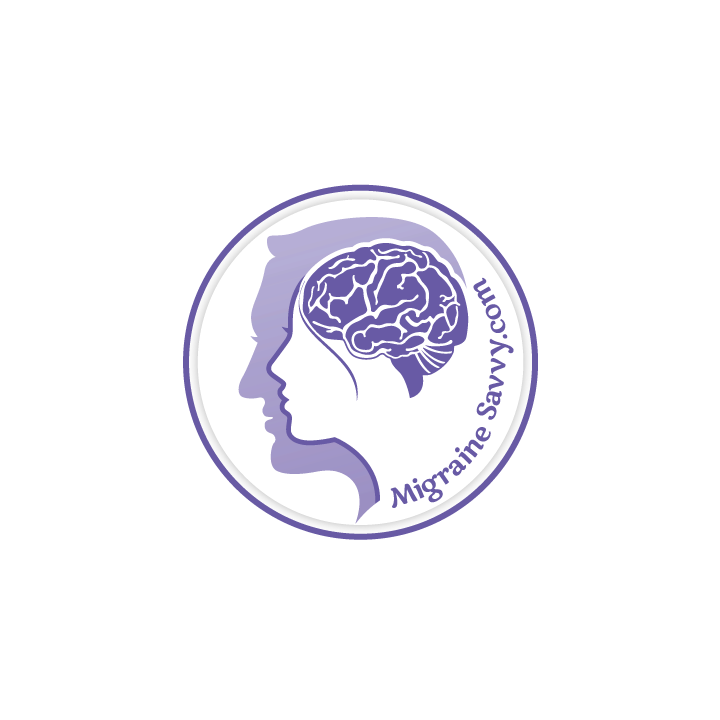- Home
- Meditation
- Migraine Pain Management Tips
COMPLETE MAGNESIUM SUPPORT
My Top Choice - Magnesium Breakthrough - The ONLY supplement with all 7 essential magnesium types in one formula. Most only have 1-2 types, leaving you deficient.
Top 10 Meditation Tips for Migraine Pain Management

Meditation has been proven to help with migraine pain management and has many other health benefits. These 10 simple tips below offer the potential reduction of your migraine severity and duration. It's free, it's easy. Give it a try!
For some starting a meditation practise sounds easy and for others it is just impossible.
It can be hard to find the time to fit this extra activity in your already jam packed, busy day.
I can only tell you that it is worth adding this method to your migraine pain management routine to help relieve your migraines or simply reduce stress in your life.
If you want to start a meditation practice in general it is a good idea to maintain a regular routine. Because your migraines probably get you behind in some things, resist the urge to become busier and fit in more activities in between migraines.
Meditating has the potential to increase your energy levels and some guru’s suggest that we enjoy the increased energy levels and consider ‘saving up’ our energy to enjoy a peaceful life instead of expending it.
Learning meditation is scientifically proven to help reduce migraine attacks.
To maintain a regular routine time, to start, try to allow twenty minutes twice a day. This is the usual recommendation time
for meditating.
The same time each day is preferred. Normally upon waking and before you go to sleep are good times to find 20 minutes to meditate.
Your routine could look like this for a twenty minute session: start with a ½ minute of silence, then 17 ½ minutes of repeating your mantra (from TM for one example) or focusing on your breath, or whatever method you have chosen to do, and then 2 minutes of silence or nothingness to end the meditation. Just sit there and become aware of the room.
It is best not to rush back to your daily tasks. You can time yourself at first so you get a feel for the timing, but find a gentle alarm or use a light. Migraine pain management is more about pacing yourself and less about business.
My #1 Choice in Magnesium Supplements
Tip #1 Find Your Space
Obviously the best place for us when we are having symptoms of an impending migraine attack is to be at home in bed. So number one to me is to find a dark room to lie down in.
If you are at work and
cannot get home, then it is still important to find a quiet space to
sit. Lying down really is best, and using eye masks or dark eye covers
relieves a lot of tension and pressure from lights.
Tip #2 Use Ice And Heat
Place an ice pack on your neck and get a hot water bottle for your hands. Ice is my number one migraine pain management tool. See our ice and heat treatment that Dr. C. Northrup uses to fend off an attack in my how to treat a migraine article. If that is not possible, try to find a cool cloth, towel or face cloth to keep near you for your forehead or neck.
Another alternative is to
have a bowl of cool or warm water with lavender and peppermint
essential oil in it to help relieve the pain on your forehead.

Tip #3 Be Prepared To Vomit
This may sound a bit much, but having a garbage pail, bucket or
plastic bag nearby in case you vomit is a nice safety measure to take.
I used to keep a small hand towel and a plastic bag in my car at all
times. Just for emergency migraine attacks. It also reduced my anxiety around others seeing me if I was lying down in the office.
It is important to
know your early warning signals so you can act as soon as possible. It
is important to start meditating at the first symptom if you want to use
this as an effective migraine pain management method to potentially abort your migraine attack.
Tip #4 Practice Deep Breathing
Use your breath to calm down your nervous system at the first sign of migraine symptoms. Breathing deeply relaxes the whole system and allows tension to leave your body. This is crucial for migraine pain management.
Dr. Andrew Weil has a great double disc CD called Breathing: The Master Key to Self Healing.
It includes an 11 page booklet with breathing exercises and original music composed by Mark McCoin.
In the second disc Dr. Weil guides you through 8 relaxing and energizing breath exercises. It’s worth every penny.
Deep breathing produces soothing, relaxing, and pleasure-inducing alpha brain waves. It calms the excitatory neurotransmitters and stimulates melatonin. This turns off the stress response system and relieves anxiety and stress instantly and promotes better sleep. [3]
Tip #5 Imagine the Pain Dissolving
Let your breath take the tension and pain away.
Spend some
time imagining your breath taking your tension away from each body part.
Say things to yourself like: "I let go of all the tension in my head,
I let go of all the tension in my neck, all the pressure is
disappearing, all the pain is dissolving, the migraine is dissolving
away."
And then quietly say "I have let go of all the tension
in my head, neck and shoulders. With each breath my stress and tension
flows away."
Tip #6 Allow It
This might be the hardest part of using meditation as migraine pain management.
Physical sensations will increase as you move your awareness inside. You will also experience persistent overpowering thoughts. Gently return to your mantra, images of well being or breath. Allow the thoughts to be there and allow the physical sensations to appear. The thoughts and sensations may be connected.
Remain present with the
physical sensation, observe it. Focus on your breath. The physical sensation should peak and then start to diminish and disperse.
Tip #7 You'll Have Good Days and Bad Days
You will have good days and you will have bad days.
Sometimes
you will be able to meditate your attack away and sometimes you
won’t. Let's be honest here! Your meditations, in either your regular
practice or pre migraine will change day to day depending on many
factors: food, stress, ability to focus your mind, soreness or injury in
your physical body, tiredness, pain intensity already present and
medications.
Taking medications early is very important for
many migraineurs. I was very happy to read that this is not only
acceptable but preferred in the meditation world:
"Remaining
ill will spoil the meditation more than the use of medicine. The advice
is to choose the lesser evil. If we have to choose between illness or
medicine, it is more useful to decide for medicine and against sickness.
The effect of medicine, even if it overshadows clear meditations, is,
in the final analysis, useful." [2]
I don’t
recommend doing Vipassana or intensely focused pain meditations where you tune right into
the pain with a migraine. Past a certain point the pain only gets more
intense.
Use a guided imagery meditation with your migraine to take you away from the pain or even out of your body so you can fall asleep. Don't increase your pain levels if you can help it.
There is a point of no return, and you may just have to let the migraine run its course.
I have evidence based migraine pain management strategies in my course, here's the link - Migraine Pain Management Course.
Tip #8 Step Back From The Pain
Try to remain an objective observer. Just observe the pain from a
distance if you can. Transcendental meditation says that a "passive
attitude" is best. Passive and neutral – yeah right. TM says to watch
the flow and change throughout your body. Do not label pain, or
throbbing, just tell yourself the sensation is flowing.
Focusing
therapy also has a good technique where you just step back from the
pain to get distance, or better yet give it a color, a texture, and a
shape and imagine putting it on a deserted island far far away! I like this one the best, if you can manage it.
Tip #9 Relaxing Guided Imagery
You may experience more intense pain during meditation, try welcoming it and saying “hello.” I know it sounds insane at first, to welcome your pain. I have found using this method called Focusing Therapy to be a most gentle form of meditating when I have a migraine coming on. It helps me to accept that yet another migraine is on its way and it's time for me to start my migraine pain management routine.
I also find using a guided imagery meditation CD nice and simple for when the pain
is already too intense. Here's a link to my meditation course...
You may find different forms of meditation suit you at different times, before or between migraines.
Tip #10 Sitting vs Lying
If you are not able to get home and are still at work and trying to sit in a meditation, be aware of your posture.
Make sure your spine is straight and you are comfortable. You don’t have to sit in lotus position like the yogi’s.
You may find yourself slouching or tilting
your head after some time sitting.
When you become aware of this just bring your head back to an upright centered position. If you are more comfortable with your head tilted forward then it is better to leave it where you are comfortable and enjoy the meditation rather than putting further strain on your neck. Or you can try this:
- Tuck your chin in a little to align your neck;
- Find a comfortable position in your spine again, not too straight and not too stiff but relaxed somewhere in between;
- Continue and enjoy the meditation.
It really is best to find a place to lie down if a migraine is approaching or just take action and get home to bed the easiest way possible. Phone someone to pick you up, call a taxi, or get a friend from work to drive you home.
Sleeping off a migraine is a good choice!
Sleep is a great healer.
For More Migraine Pain Management Tips... SUBSCRIBE
WANT MORE TIPS? Subscribe to my newsletter and follow along on Facebook and Pinterest for all of the latest updates.
MIGRAINE MEDITATIONS Related Articles
How to be more MIGRAINE SAVVY right now...
Migraine Pain Management References:
1. Benson, H. M.D. (1975) The Relaxation Response. Harpers Collins Publishers: NY.
2. Doughney, Mike and Jai Guru Dev (2009) General Points on Transcendental Meditation. Available [online] at: http://minet.org/checkinggp.html Accessed June 12, 2016.
3. Perkins, C. (2012) Mindfulness Over Migraines. Cynthia Perkins Self Published: USA. (p.26).


